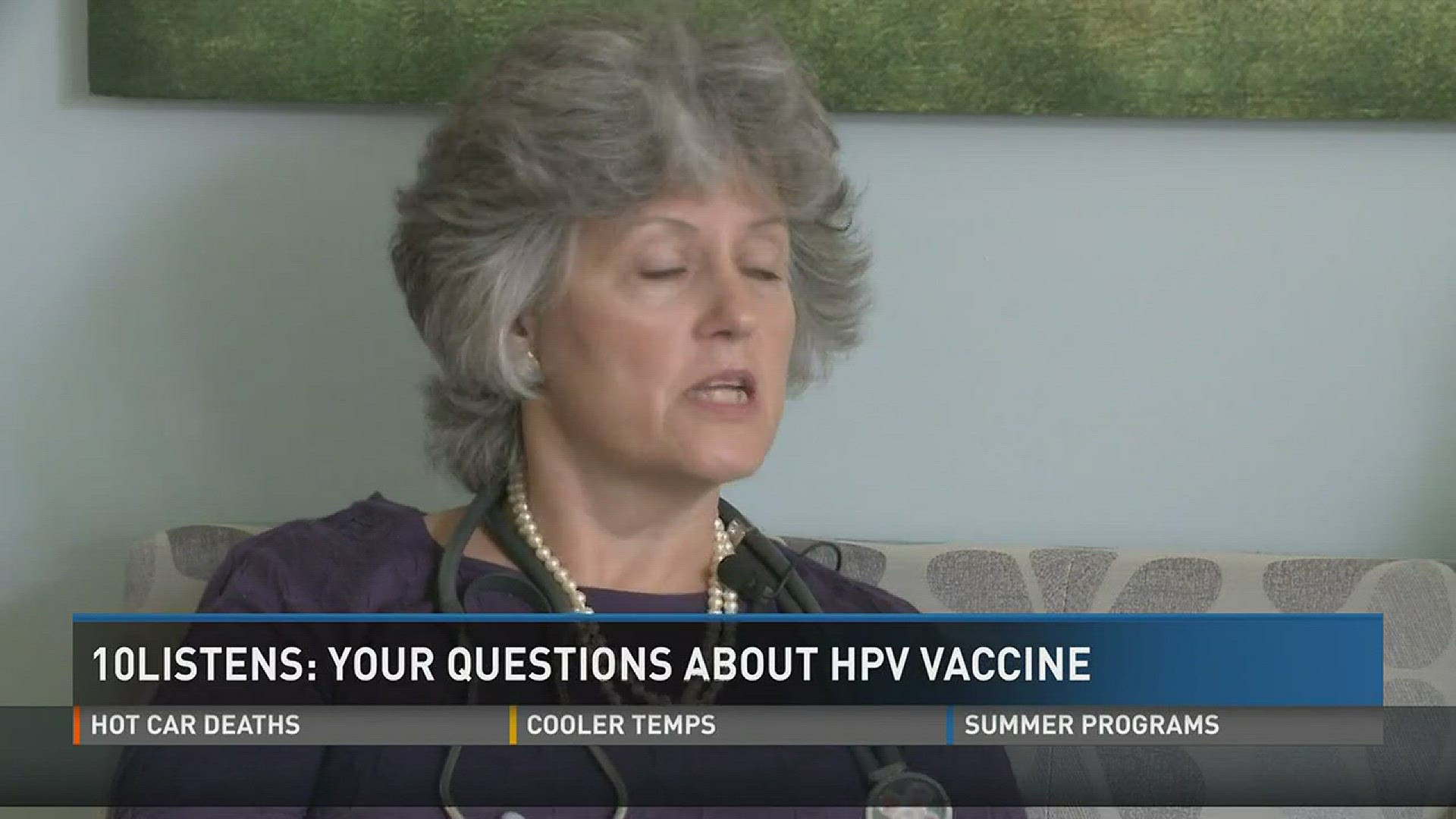Commercials and public service announcements are raising awareness and promoting the vaccine for HPV. It’s short for Human Papillomavirus.
“We all come in contact with it through sexual activity,” said Dr. Larry Kilgore, an gynecological oncologist at UT Medical Center.
According to the CDC, 79 million Americans currently have HPV and another 14 million will become infected this year.
“Fortunately most of us develop an immunity to it, but not all,” said Dr. Kilgore.
Certain types of HPV cause genital problems, cervical cancer and others with 27 thousand new cancer cases every year.
“Cervix cancer is one of the worst cancers a woman can have. It's absolutely devastating.”
Dr. Kilgore sees advanced cases daily at UT Medical Center, mostly stage 3 and 4 cancer.
“We see the effects of the virus,” said Jessica Wilds.
Wilds is a nurse anesthetist and a mom.
“I think about my kids a lot at work when I see diseases or trauma.”
Wilds doesn't want her daughters to experience what she's witnessed in the OR. After talking to her pediatrician, she chose to vaccinate her two oldest.
“As her mom, as the one person who can get her the care she needs to prevent diseases then why not,” asks Wilds.
But others parents, like Meredith Prince, are undecided.
“I personally have questions as to if I need to have my boys vaccinated,” said Prince.
Only about 10 percent of boys do. Prince joined us to talk with Dr. Lori Patterson, East Tennessee Children's Hospital Pediatric Infection Disease Division Director.
“Part of that is because of the public perception of why should I get it for my sons they don't have a cervix,” said Dr. Patterson.
Both she and Dr. Kilgore are adamant- the vaccine is just as important for boys.
“Boys and men get lots of head, neck, throat and tongue cancers from the HPV virus,” explained Dr. Kilgore.
Can you get HPV from the vaccine?
“Nope. No,” said Dr. Patterson. “It’s biologically impossible because it's only a piece of the virus.”
“So there are no long term side effects from the vaccine,” asked Prince.
“None that have been identified to this point,” said Dr. Patterson.
And, Dr. Patterson calls the vaccine a tremendous medical advancement.
“It's incredibly effective.”
“The only cancer in the world that we have a vaccine to prevent is cervical cancer and the HPV related cancers that men can have,” said Dr. Kilgore.
So why are so few getting it?
“This has been a tremendous frustration for us,” admitted Dr. Patterson.
Doctors Patterson and Kilgore agree on several reasons.
1) The vaccine is not required for school.
“Australia, where it's required, 98 percent of young men and women are vaccinated. and their rates of cervix cancers and pre cancers and genital problems related to HPV are just plummeting,” said Dr. Kilgore.
2) The HPV vaccine prevents a sexually transmitted virus. Not something most parents want to think or talk about.
“Unfortunately, early on this got a reputation as a sexually transmitted disease vaccine rather than a cervical cancer vaccine,” Dr. Patterson. “You know who amongst us wouldn't want to prevent cancer in our children.”
The recommended preteen age may seem young, but doctors say the vaccine is designed to protect them later in life.
“So the idea of vaccinating the preteens and teenagers is to try to get those kids immune to the viruses before they ever have exposure to them.”
The current recommendation is a 2 shot dosage for boys and girls ages 11-14 and a 3 shot dosage for teenagers 15 and over.
Many insurance plans cover the vaccine.
The Knox County Health Department has it. It costs $187 dollars per dose and a $15 administer fee. Financial assistance is available.

